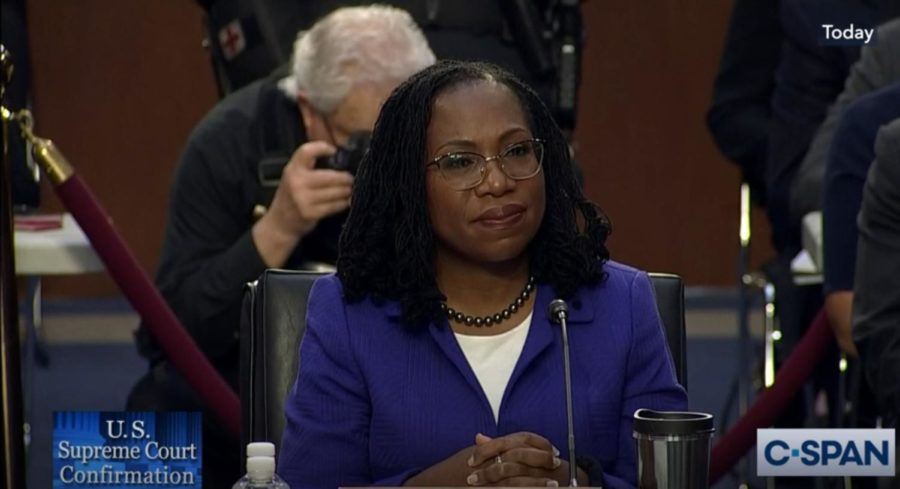Ketanji Jackson Confirmed in Landmark Vote
Justice Ketanji Brown Jackson faces the Senate Judiciary Committee.
Justice Ketanji Brown Jackson was confirmed as the nation’s 116th Associate Supreme Court Justice after a narrow 53-47 Senate vote on Thursday, April 7, with three Republican Senators joining the Democrats to vote in favor. Justice Jackson will take the seat of liberal Justice Stephen Breyer, who, after serving 28 years on the court, will retire at the end of the 2021-22 term.
Justice Jackson’s confirmation cemented her place in history as the first Black woman to serve on the Supreme Court for over two centuries of its establishment and delivered on Biden’s promise to diversify the federal judiciary. Dr. Thomas Fisher, instructor in humanities, spoke on the significance of Justice Jackson’s confirmation. He said, “It’s a big problem that women and people of color have been historically excluded from the Supreme Court. It’s not just a problem in that their views are not represented in the Supreme Court, but it’s a problem for the legitimacy of the court. It is tough to argue that a court that doesn’t look like the country [with regards to race and gender] is in a position to tell the country what it means to follow the constitution.”
Before receiving confirmation from the Senate, Justice Jackson faced three days of confirmation hearings before the Senate Judiciary Committee. The hearings featured sharp lines of questioning by Republican senators, who challenged Justice Jackson’s opinions on controversial topics such as critical race theory and criticized her work on past cases as a federal public defender. Senator Josh Hawley (R-MO) questioned Justice Jackson on her involvement in the sentencing of several child pornography cases, accusing her of treating offenders too sympathetically, to which Justice Jackson responded by arguing that she determined each sentence justly and in alignment with Congressional requirements. Many criticized Hawley’s claims and a number of similar ones as being factually inaccurate and misplaced in the context of the hearings, condemning the brutality of the questioning to which senators were subjecting Justice Jackson.
Since Justice Jackson’s nomination, tensions between senators of opposing parties have grown steadily. Walker Perrenoud ’22, head of the Hotchkiss Republicans, spoke on the increasing polarization of the Senate in the context of Supreme Court nominations. He said, “It’s gotten to the point where many senators are looking for a Supreme Court Justice that exactly matches their political views when in reality the Supreme Court is not supposed to be a political body.”
Although the vote was closely split along party lines, it was not the 50-50 split that many expected. Republican Senators Susan Collins (ME), Mitt Romney (UT), and Lisa Murkowski (AK) crossed party lines to vote in favor of Justice Jackson’s confirmation, citing her qualifications, experience, and character.
Justice Jackson will be officially sworn in at the beginning of this summer.





